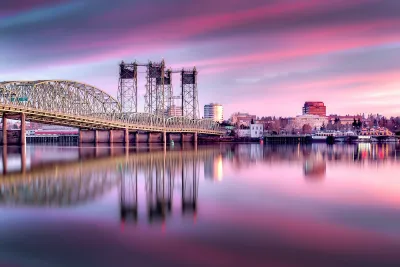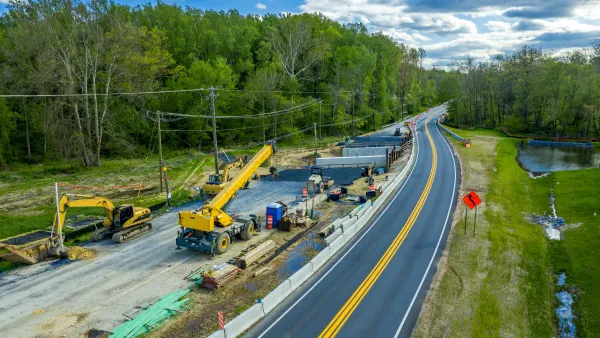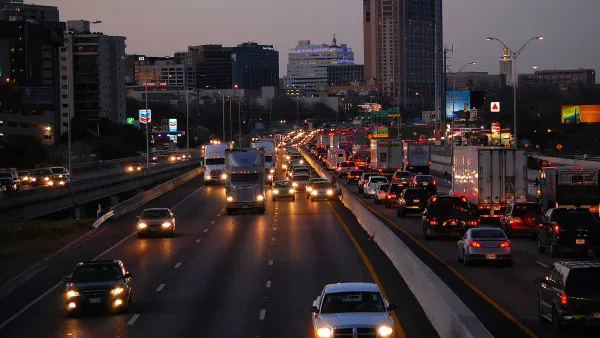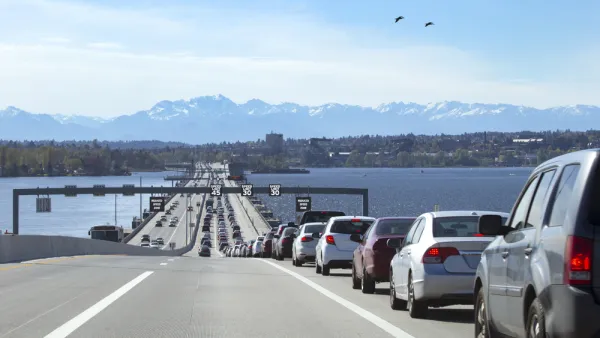The environmental impact report for a massive highway project in the Pacific Northwest ignores the reality of induced demand.

A $7.5-billion highway expansion project in the Pacific Northwest is in “deep denial,” writes Ryan Packer in The Urbanist, noting that the proposed widening of Interstate 5 and replacement of the Columbia Bridge between Washington and Oregon ignore the well-proven concept of induced demand.
As Packer explains, “After months of delay, the IBR team has finally released its draft environmental review, one of the biggest hurdles left to clear before it can start construction, still targeted for sometime in 2026.”
The project is the largest in Pacific Northwest history and will add two “auxiliary” lanes, rebuild seven interchanges, and extend light rail into Vancouver, Washington. “However, the shiny new document leaves out an essential consideration when it comes to projecting the future effects of I-5 expansion in this long-constrained corridor, an omission that would have been much less noticed in a decade ago but which sticks out like a sore thumb now.”
For Packer, the project is another example of archaic thinking that prioritizes cars and will ultimately create more traffic. “To present the IBR as a climate win, the project team is framing a 23% increase in total traffic as resulting in a net reduction in emissions largely because of a broader transition to electric vehicles that is wholly outside the project’s control. But they also cite a reduction in stop-and-go traffic as leading to future emissions reductions, another myth has has been fully refuted for years.”
FULL STORY: Pacific Northwest’s Largest Highway Project Ever Is in Deep Denial

National Parks Layoffs Will Cause Communities to Lose Billions
Thousands of essential park workers were laid off this week, just before the busy spring break season.

Retro-silient?: America’s First “Eco-burb,” The Woodlands Turns 50
A master-planned community north of Houston offers lessons on green infrastructure and resilient design, but falls short of its founder’s lofty affordability and walkability goals.

Delivering for America Plan Will Downgrade Mail Service in at Least 49.5 Percent of Zip Codes
Republican and Democrat lawmakers criticize the plan for its disproportionate negative impact on rural communities.

Test News Post 1
This is a summary

Test News Headline 46
Test for the image on the front page.

Balancing Bombs and Butterflies: How the National Guard Protects a Rare Species
The National Guard at Fort Indiantown Gap uses GIS technology and land management strategies to balance military training with conservation efforts, ensuring the survival of the rare eastern regal fritillary butterfly.
Urban Design for Planners 1: Software Tools
This six-course series explores essential urban design concepts using open source software and equips planners with the tools they need to participate fully in the urban design process.
Planning for Universal Design
Learn the tools for implementing Universal Design in planning regulations.
EMC Planning Group, Inc.
Planetizen
Planetizen
Mpact (formerly Rail~Volution)
Great Falls Development Authority, Inc.
HUDs Office of Policy Development and Research
NYU Wagner Graduate School of Public Service





























